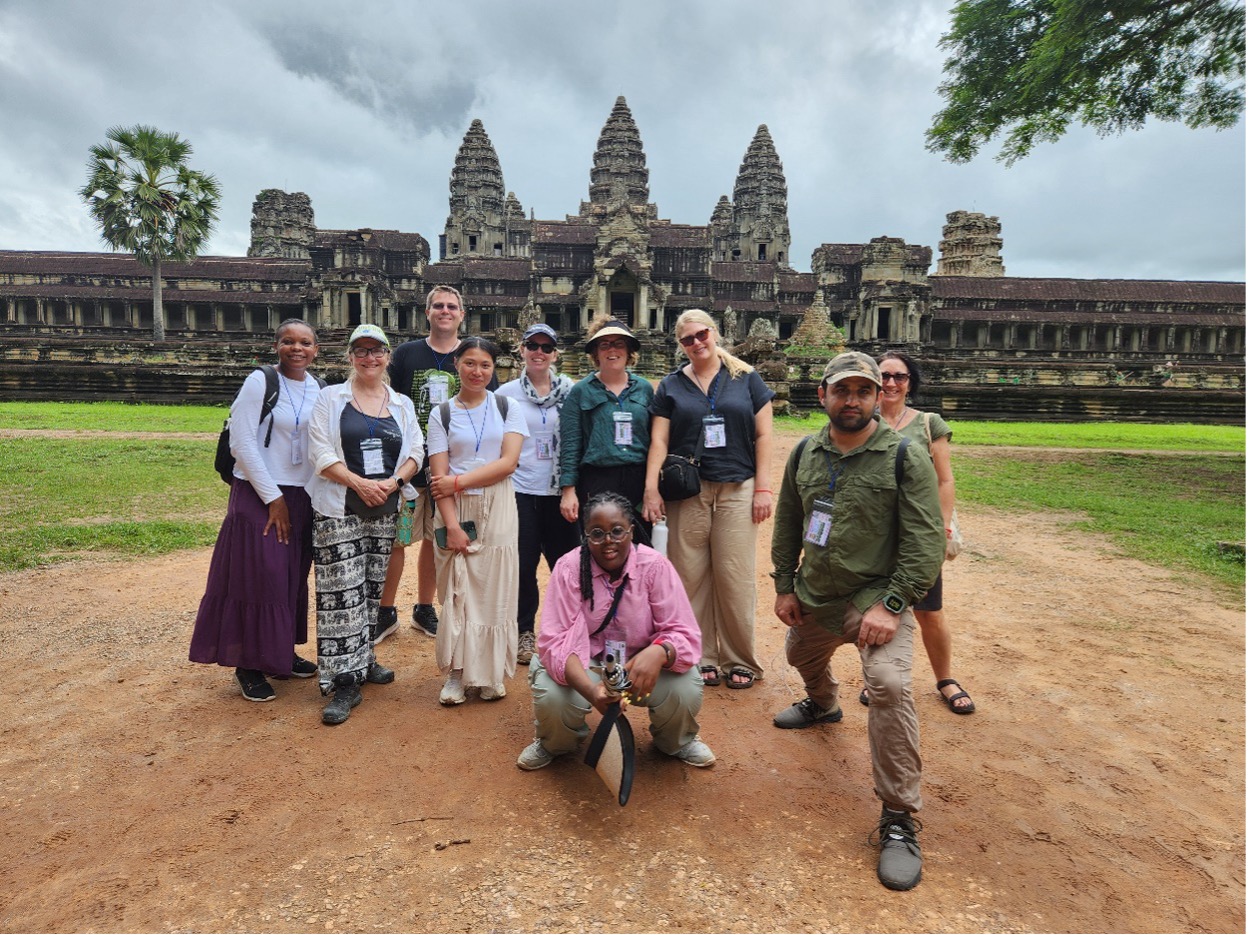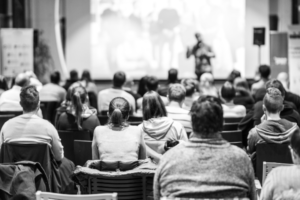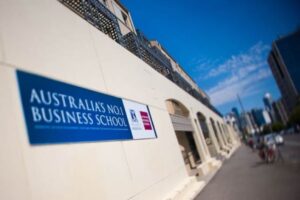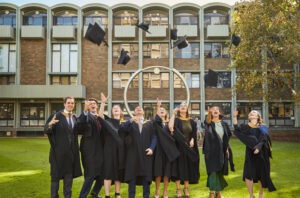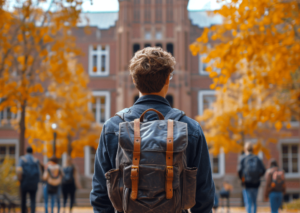There are many quotes attributed to writers, philosophers, movie stars, politicians and saints that espouse the value of travel in broadening the mind, building bridges and providing a sense of perspective.
With the world needing leaders with open hearts and minds, an International Business Study tour to Cambodia undertaken in July by Edith Cowan University MBA students provided a deeply transformative learning experience which genuinely opened both.
Addressing wicked problems to advance social and environmental sustainability requires more than a toolkit of knowledge and skills (knowing and doing), it requires leaders with the dispositions (ways of being) required to show up willingly to work with diverse stakeholders in a holistic manner so that their organisations are creating value for all.
So how did two-weeks in Cambodia contribute to this?
Over the course of the tour, students were constantly challenged and taken out of their comfort zones through harrowing tales of this small country’s dark past. The emotional roller coaster of a journey was also filled with heart-warming stories of selfless, committed and caring individuals in social enterprises, businesses, non-government organisations (NGOs) and cultural facilities who were working collaboratively to drive positive change.
As MBA student Amber De Jong said: “Exploring Cambodia on a business tour has reshaped my approach to business and leadership. Witnessing people’s resilience and entrepreneurial spirit amidst challenges taught me that success lies not just in strategy but in fostering a culture of adaptability, empathy, and innovation.”
It is extremely difficult to do justice to all the experiences we had on a tour which traversed the country including the capital Phnom Penh, a provincial capital Battambang, a small rural village and Siem Reap, home to Cambodia’s most iconic architecture, Angkor Wat.
Highlights in Phnom Penh included the stunning Royal Palace and Silver Pagoda and a visit to the Royal Academy of Cambodia (RAC) where we were generously hosted by an ECU Alumnus, Dr Digby Wren and met Australian businessmen living and working in Cambodia to share their insights about doing business responsibly in the country.
Our visits to the Documentation Centre of Cambodia, Toul Sleng Genocide Museum and the Killing Fields were a stark reminder of what can happen when we forget that our fellow citizens are first and foremost human beings deserving of our kindness, respect, and consideration. This was incredibly emotionally challenging for us all and was also a reminder of the importance of self-care and self-compassion.
Our hearts and spirits were uplifted on many occasions including by visiting the wonderful NGO, Pour Un Sourire D’Enfant, where we were looked after beautifully by students from this incredible organisation that provides opportunities for those with the most need in the community.
This theme of visiting inspirational social enterprises, NGOs and businesses across the country helped us dream of possibilities about doing business in a socially impactful way. The shining examples of this in a developing country heightened our awareness that we have no excuse not to build such practices into the way we do business in Australia.
We are grateful for all these organisations for their generosity in sharing their wisdom with us. These included Compost City, Impact Hub (PHNOM Penh), and Ruy Reach, Seekers Distiller, Cambodian Organisation for Children and Development (COCD), Phare Ponleu Selpak (The Brightness of the Arts), Peace Museum of Mine Action, Life and Hope Association (LHA)
Seeing the passion and commitment of all these organisations to sustainably re-building Cambodia, was transformative and the deep engagement of the students gave me great hope for the future.

However, the experience which took deep and transformative learning to a whole new level occurred over three joyful and confronting days spent in a small village, living with the villagers and undertaking a community project (helping to build a school for 3-5-year-olds).

This experience took us all out of our comfort zones, and we realised how much we take for granted things such as hot and cold running water and refrigeration.
This tour not only achieved its key aim of developing the cultural intelligence of our tour group, but it also provided a rich opportunity to reflect on how we all want to show up in our organisations and in the world to help create a safer, kinder, and more sustainable future for us all. Additionally it reinforced the important role education at all levels plays in transforming lives and communities.
Over two weeks I witnessed the dispositions we desperately need in our future leaders including genuine curiosity and openness to learn, courage, humility, vulnerability, deep awareness of personal limitations and values, comfort with uncertainty and a willingness to collaborate to address societal challenges.
Finally, I’d like to express enormous gratitude to all within ECU and CISaustralia who made this tour such a deep and meaningful learning experience.

